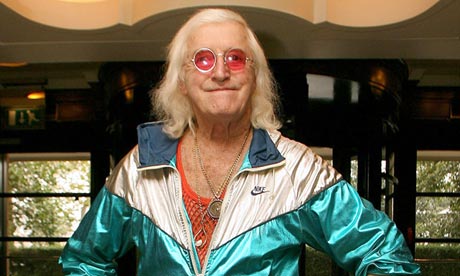
His house overlooked Roundhay Park here in Leeds, and he could often be spotted jogging around its green surrounds or messing with the meals at his favourite local restaurants. He had just secured a new undergraduate training scheme to help junior doctors and nurses with their medical research, and I wrote a congratulatory, if slightly sardonic first-person appraisal.
Savile had been vocally supportive of our magazine since its inception. We had access to his mobile phone number and he was an obvious, if perhaps lazy, target for us to gather local celebrity comment. I initially left a voicemail asking him to call the office, which he did. I was away on lunch so he left a message with my colleague: "Tell him it's Robert De Niro, he owes me money."
It was a rocky interview. I remember his impatience at the fluidity of the questioning, his attempts to steer and control the interview. But he eventually thawed and spoke with nostalgia of "inventing DJ-ing" at the Leeds Mecca - or at least the notion of using two turntables - his phobia of technology and his thoughts on death. With his "pop pals" Elvis, John Lennon and Michael Jackson dead, there would be "one hell of a band in heaven."
If heaven exists it would now seem incongruous to find Jimmy Savile in it. Following the release of the Savile Inquiry, Deborah Orr in the Guardian described him an "evil genius". He controlled his eccentric public image as an affront to mask five decades of calculated sex crimes - abuse at 14 hospitals, over 450 allegations, 34 confirmed rapes and victims as young as 13.
In hindsight, we played directly into his hands - another ploy for his mass media manipulation. When Savile died his gold casket lay in state for the general public to pay their respects. Even in death he had the last laugh.
Like all bullies, Savile's cruelty was underpinned by intimidation on all levels, from the authorities investigating to the victims themselves. Many questions still need to be asked of those who saw the abuses take place and did nothing. The danger, says Orr, is that the Savile case will be seen as "entirely exceptional". The fallout from Savile should surely be that the voices of the abused are not ignored. Police failed to prosecute Savile during his lifetime despite a litany of allegations. It may take time to restore the confidence of victims of such abuse, but the Saville reports are a prime starting point.
No comments:
Post a Comment